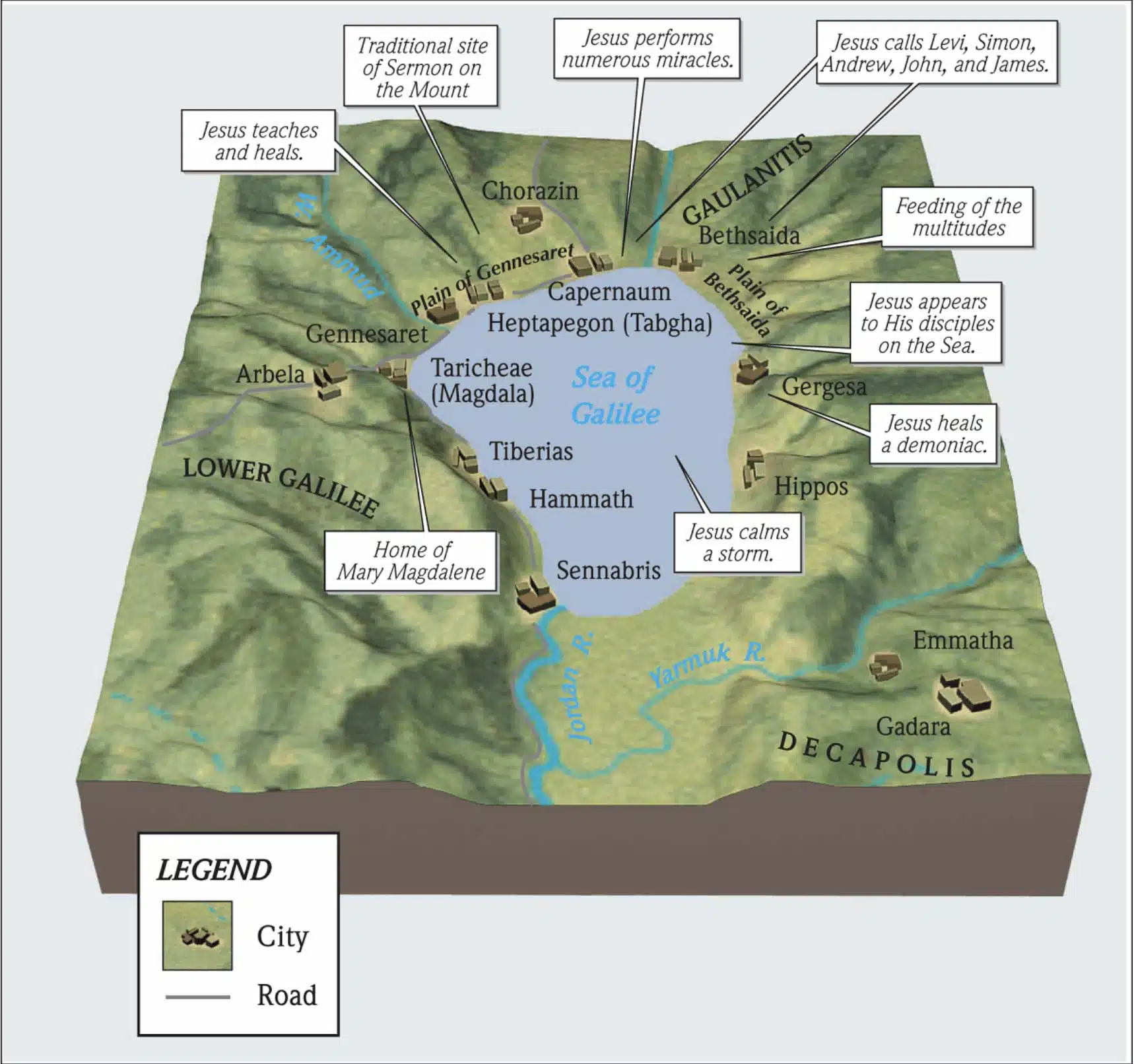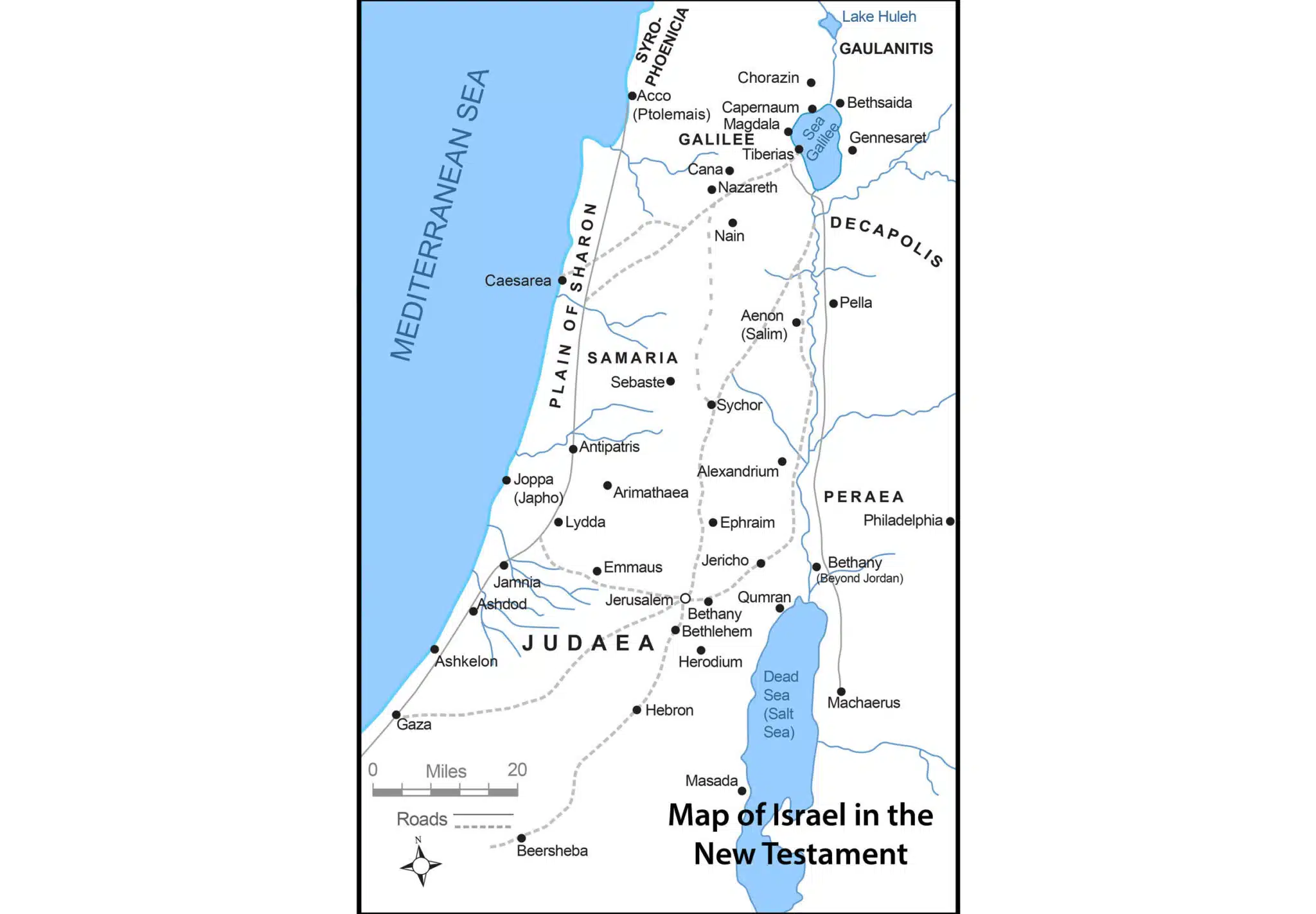Jesus’s audience was taken aback by His method of teaching.
There is no apparent parallel account of Matthew 7:28-29 in the Gospels.
Matthew’s narration resumes after Jesus is finished speaking. The first thing Matthew points out is that the crowds were amazed at this teaching when Jesus had finished these words (v 28). At the beginning of Jesus’s sermon, it was made clear that He went to a mountain and was speaking to His disciples (Matthew 5:1). The word translated crowds is “ochlos” and means a gathering of people. Matthew uses ochlos in Matthew 9:23, which states:
“When Jesus came into the official’s house, and saw the flute-players and the crowd in noisy disorder…”
In this verse, it is clear that “crowd” refers to a gathering within the confines of the house. When Matthew says Jesus was teaching the crowds, he is almost certainly referring to the group of disciples listening to Jesus on the mountain. After they come down from the mountain, they are met by “large crowds” (Matthew 8:1). Matthew adds the term “large” as a distinction from the much smaller group of disciples who followed Jesus up the mountain to hear the sermon. It is interesting to note that the disciples who made the effort to follow Jesus were the ones who got the great blessing of hearing these amazing teachings.
Remarkably, what the crowds (the disciples) were amazed by was not first and foremost the awesome message about God’s kingdom that Jesus had just delivered. The things Jesus taught were consistent with what they knew of the Law given through Moses. They knew to follow the Ten Commandments (Exodus 20:1-17, Deuteronomy 5:1-21). They knew to love your neighbor (Leviticus 19:18). They knew about the two paths leading to life or death (Deuteronomy 30:15-20). Jesus’s teaching was not new. The things Jesus was teaching was the same as Moses had taught. What amazed them was His authority. He confronted the hypocrisy of outwardly conforming to the law and got to the heart of the matter with His own authority. He called people out for not living consistently with what Moses already gave them.
They were amazed at how Jesus delivered it. Matthew writes, for He was teaching them as one having authority, and not as their scribes (v 29). His audience was not amazed at Jesus’s speaking ability, but His speaking authority.
Whenever the scribes taught, they appealed to the highest authority they could to verify or substantiate the truth of what they said. In the rabbinic tradition, a teacher’s thoughts were not greater than his authority. Rabbi’s would often provide lengthy rabbinic genealogies to support what they taught. “This was taught by Rabbi so-and-so who was the student of Rabbi such-and-such, who was the student of Rabbi…” and so on.
But throughout this sermon Jesus appeals to the Highest authority there is—Himself. Every single time (14 total) that He said “But I say to you…” it was a theological thunderclap in the ears of the Jews. This, more than any of the radical things He taught, amazed them. Matthew acknowledges their amazement in writing as a way of sympathizing with His readers in their astonishment, as if to smile dumbfounded with them, “Yep, He said THAT!”
When we consider the fact that Jesus was a man, it should amaze us as well.
Biblical Text
28 When Jesus had finished these words, the crowds were amazed at His teaching; 29 for He was teaching them as one having authority, and not as their scribes.
Check out our other commentaries:
-
Psalm 121:5-8 meaning
The Lord, the maker of heaven and earth, is constantly watching over humanity, seeking to guide, protect and deliver His beloved charges from the grasp...... -
Proverbs 6:20-25 meaning
The commands of God and the teachings of those who follow Him illuminate our path. They lead to discernment, peace, and fellowship....... -
Matthew 13:1-9 meaning
Jesus teaches a parable about a sower who scatters his seed on four different types of ground. The first three types of ground fail to...... -
Acts 2:1-4 meaning
The Holy Spirit arrives as promised. With the sound of wind and the appearance of flaming tongues, the disciples are filled by the Spirit and...... -
Daniel 3:1-2 meaning
King Nebuchadnezzar builds a golden statue and summons his sub-rulers to come see it.......




